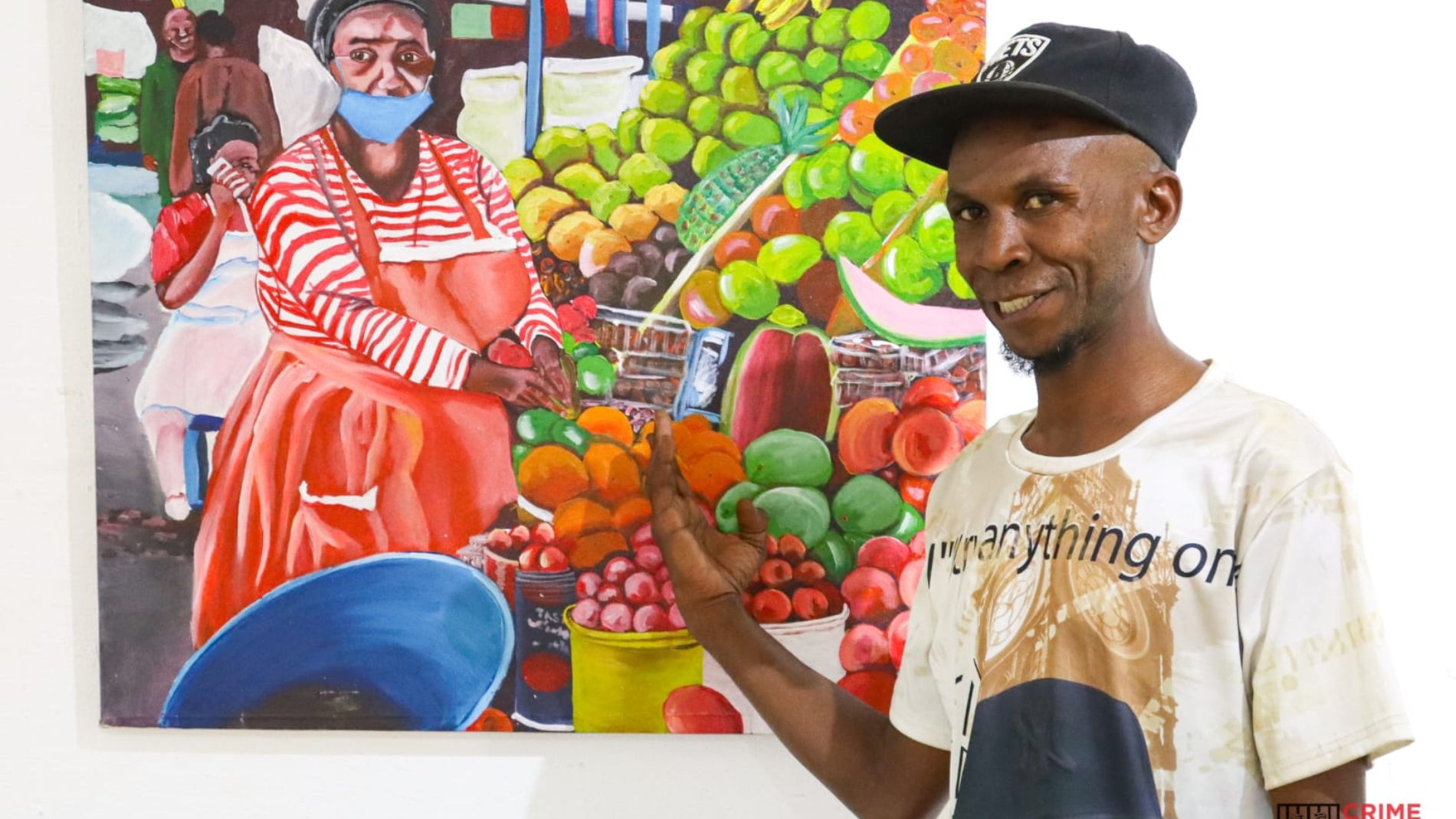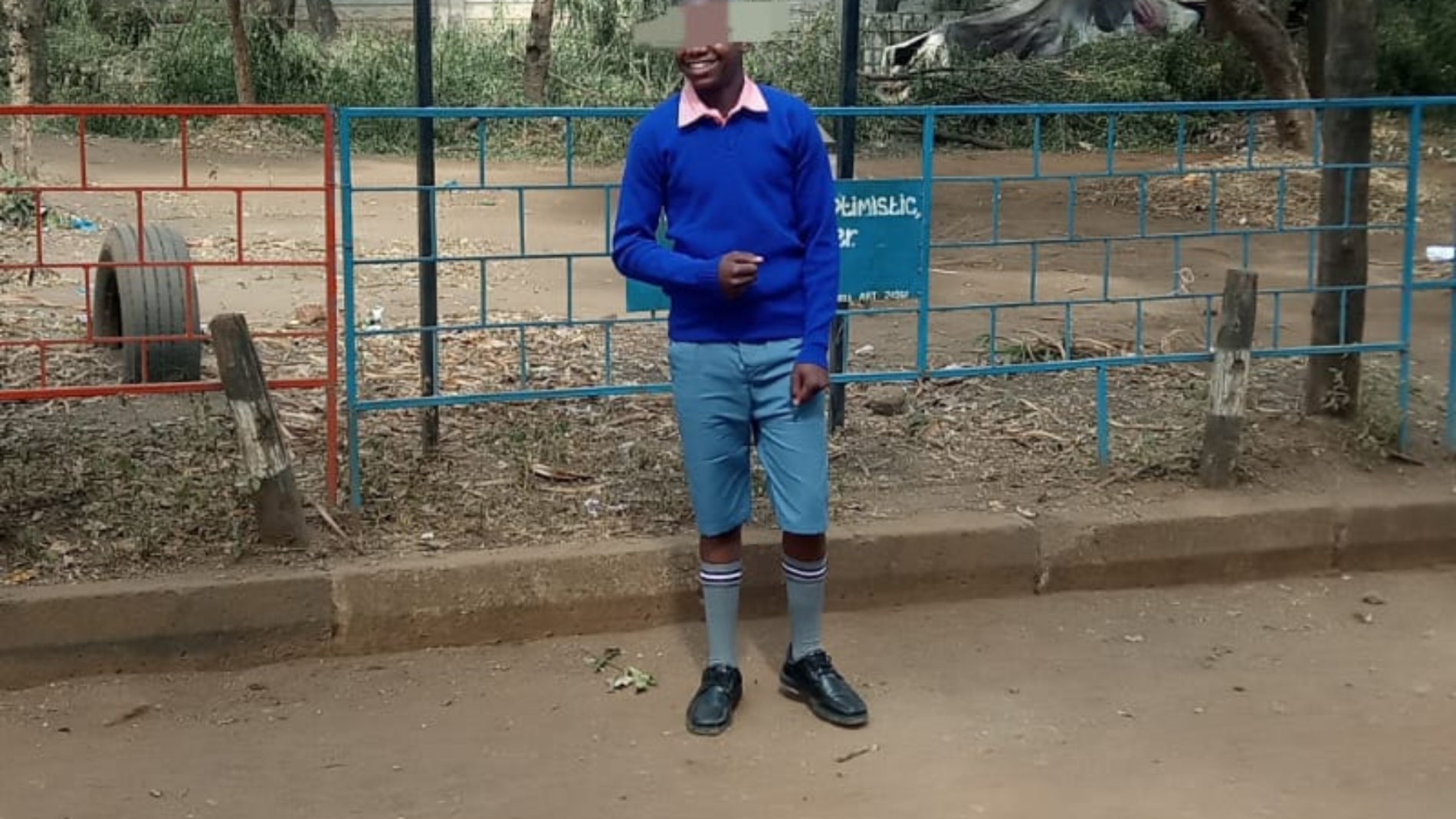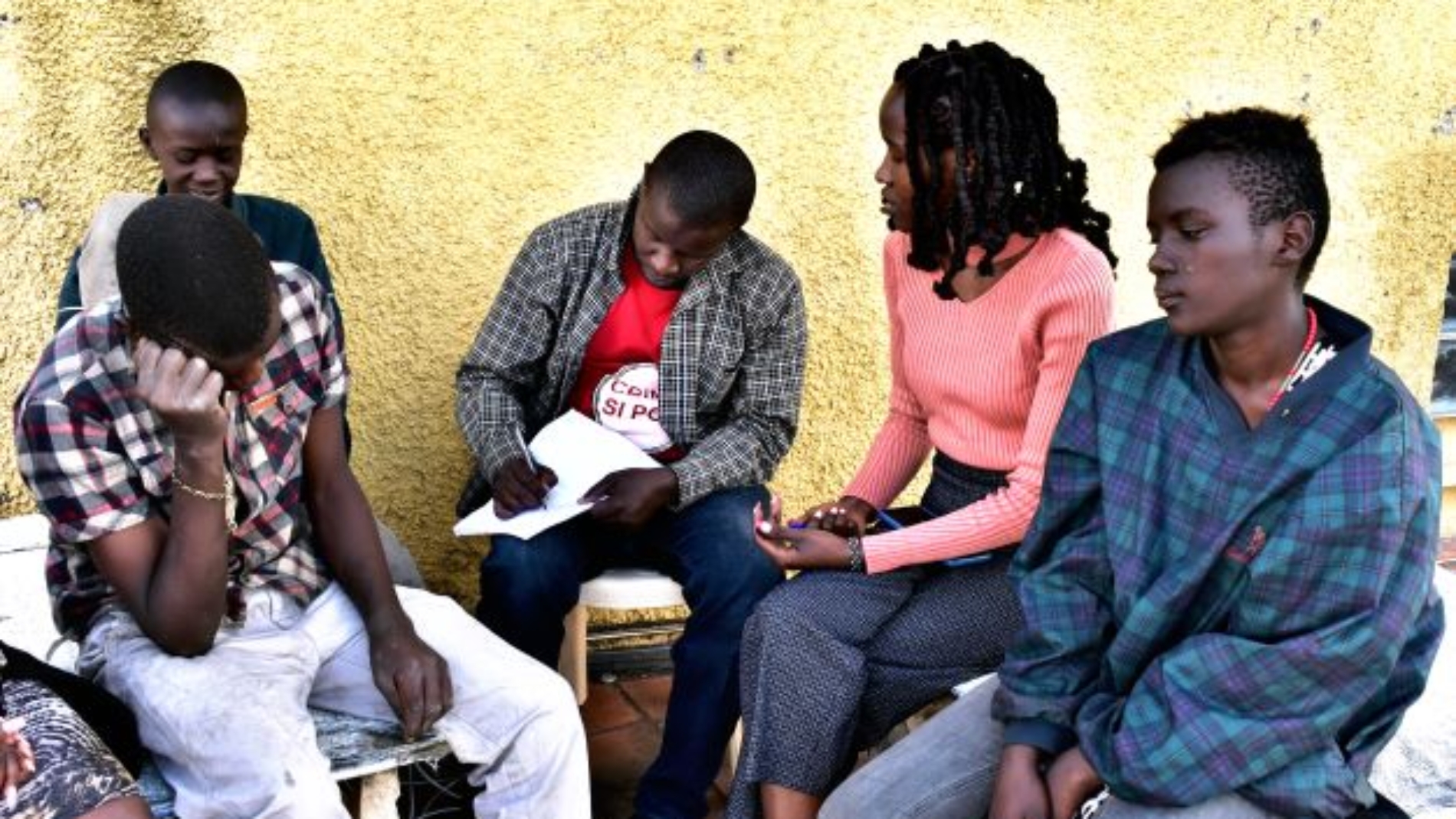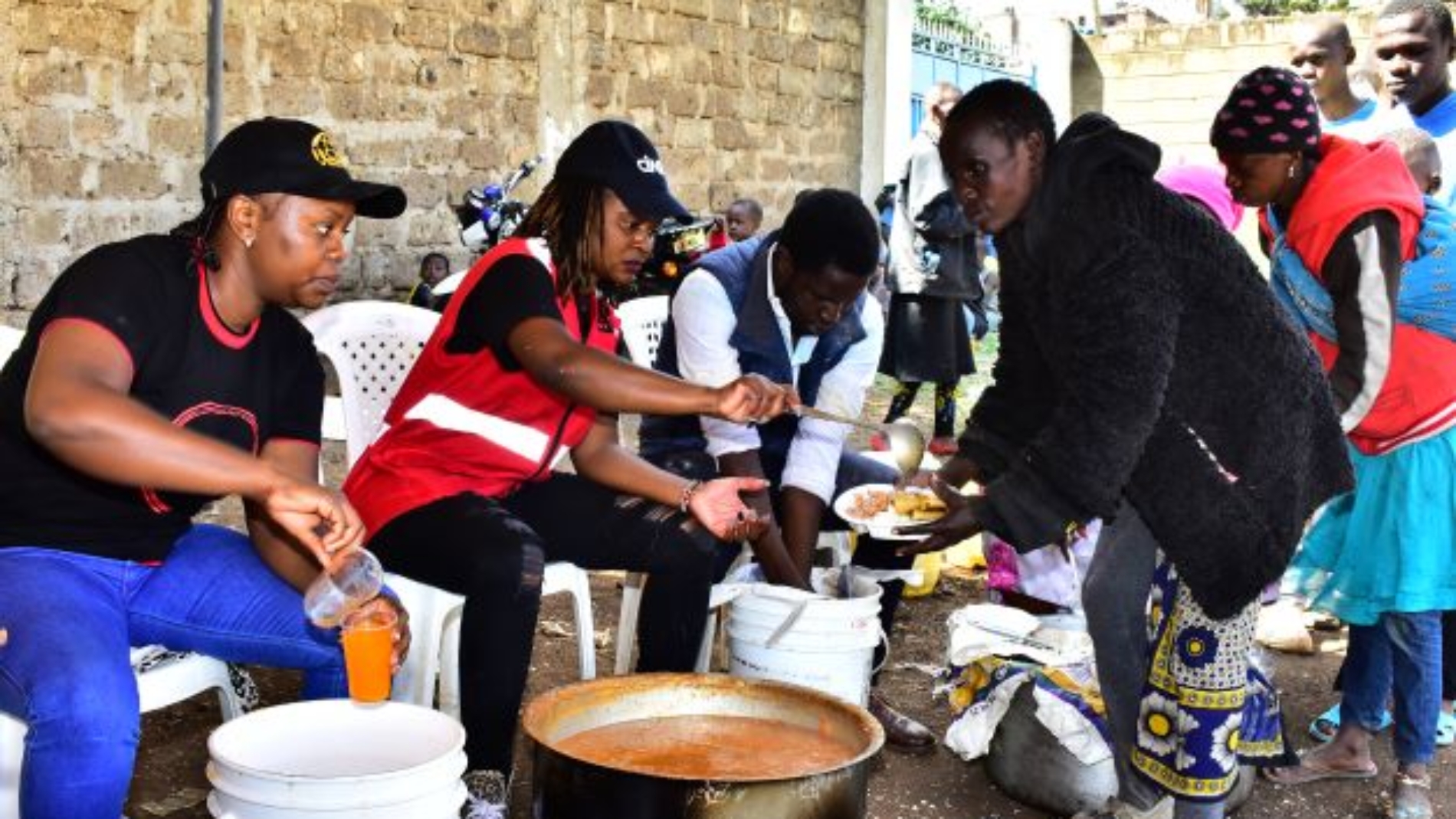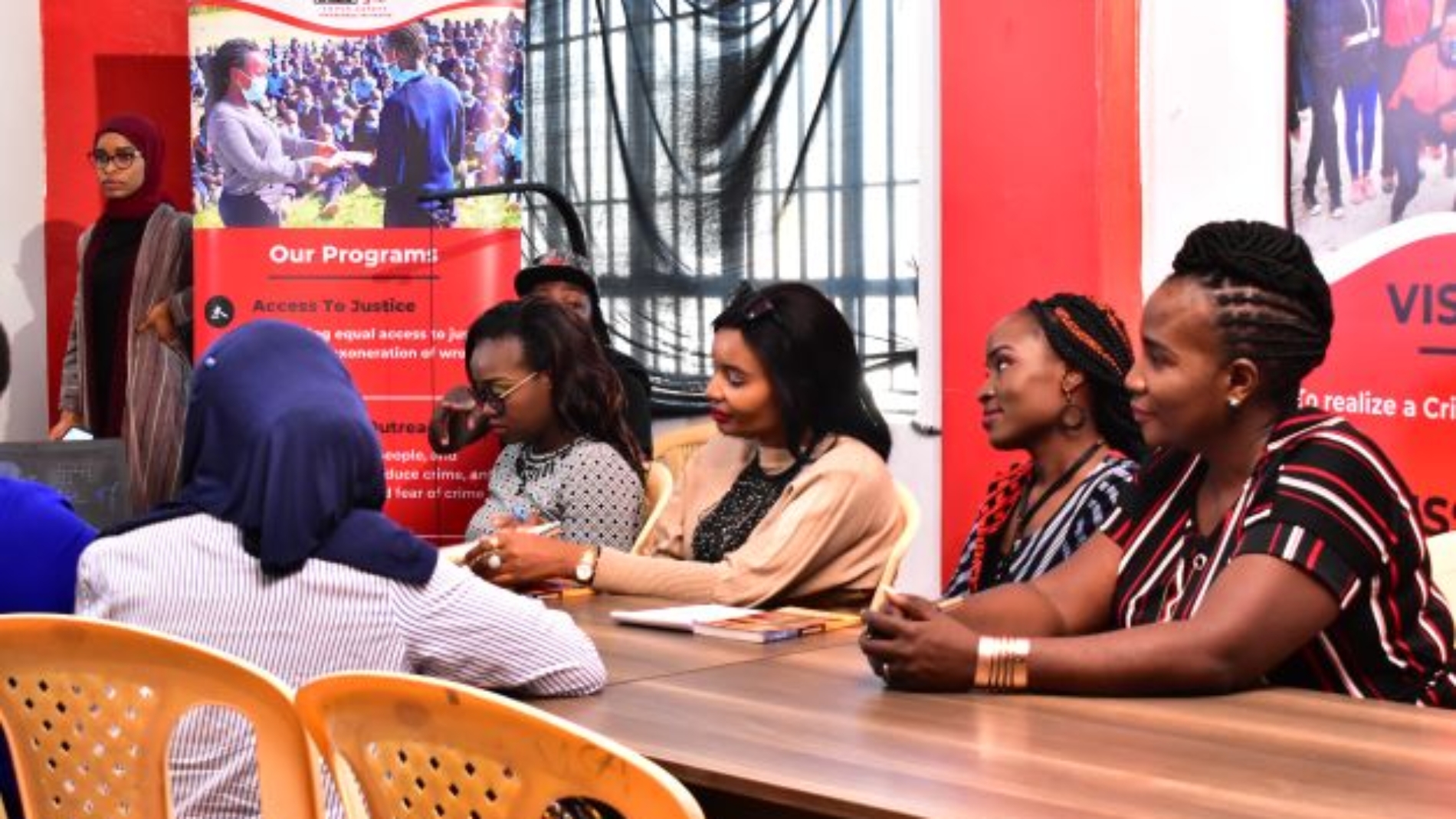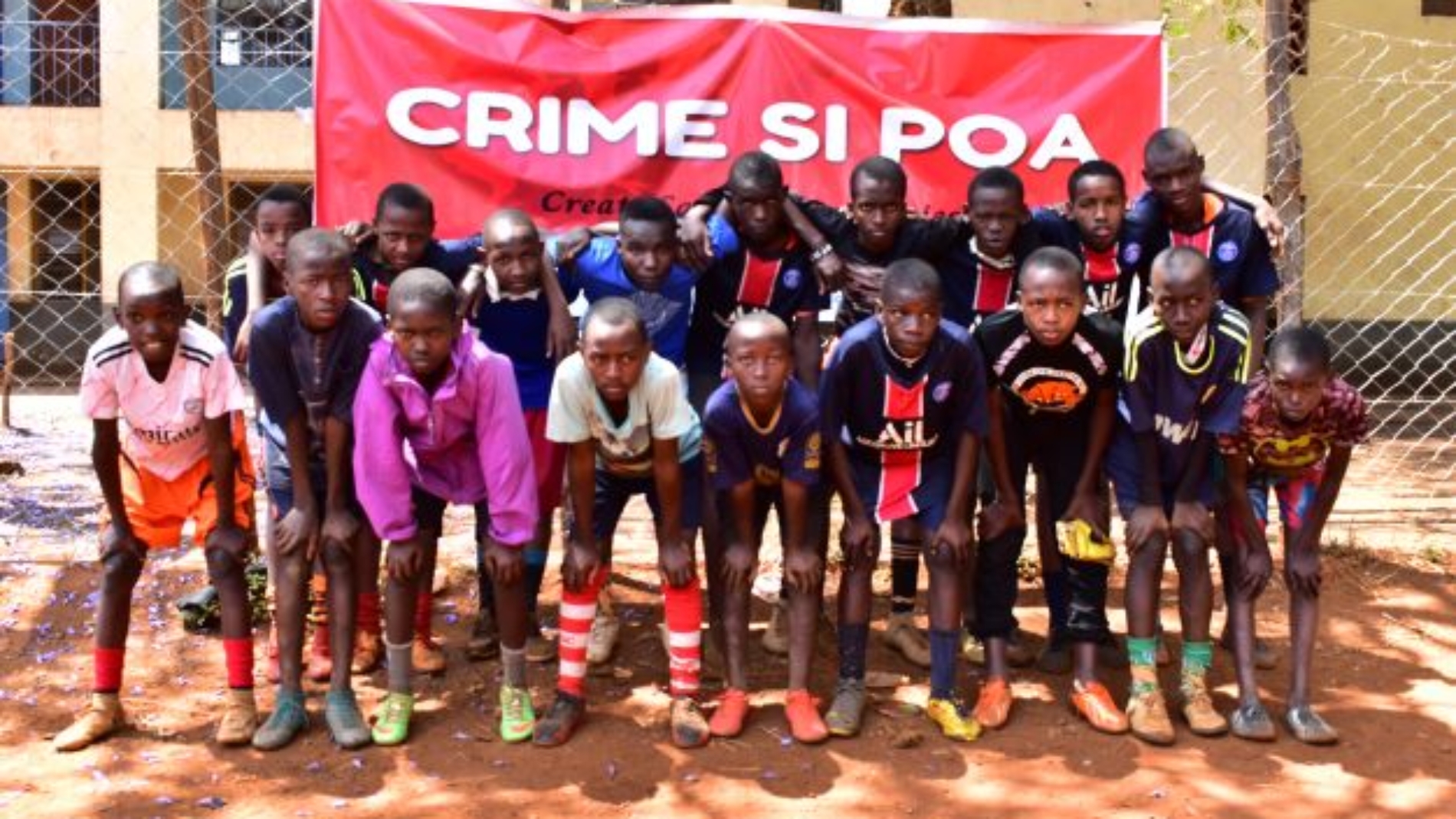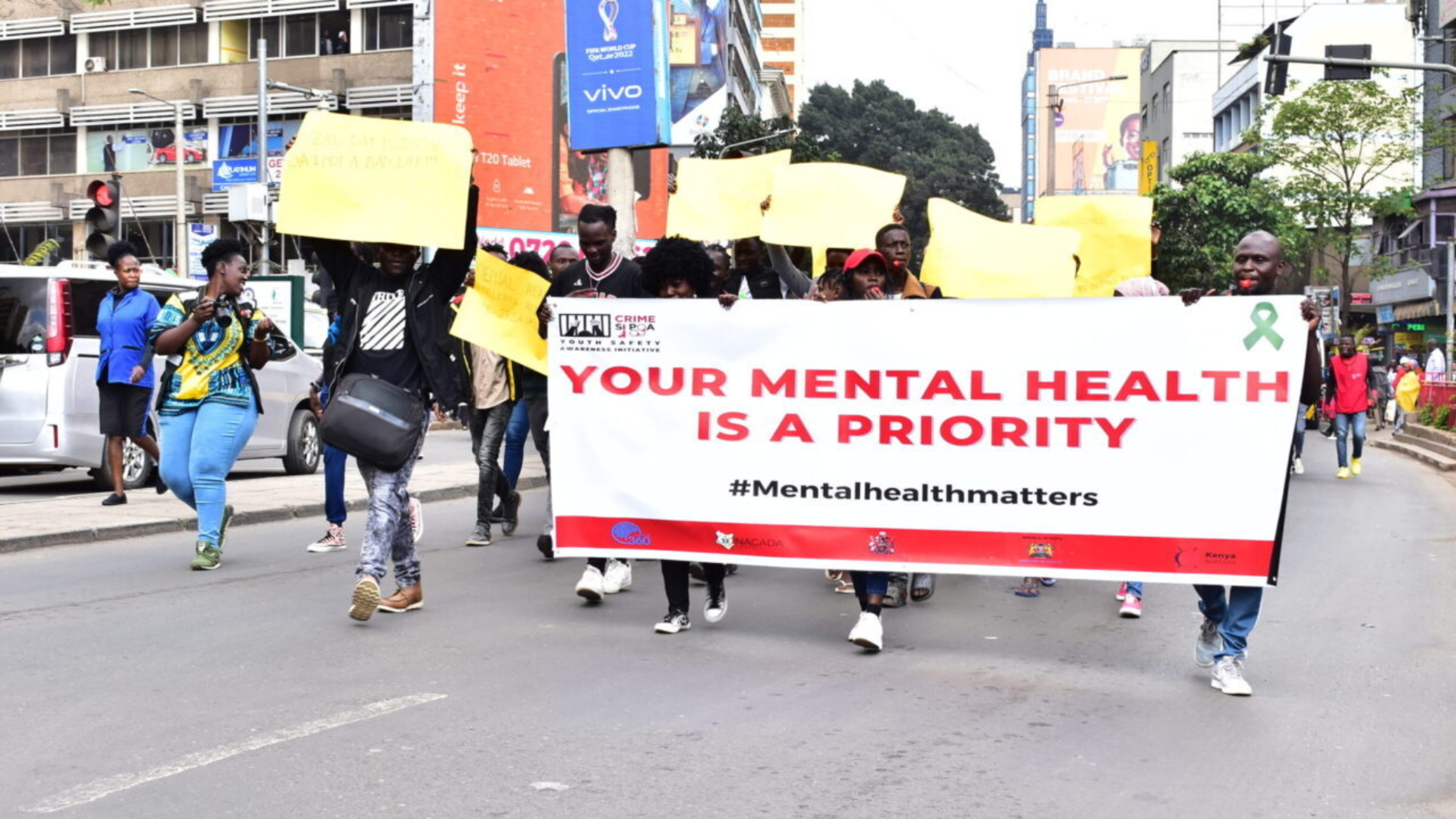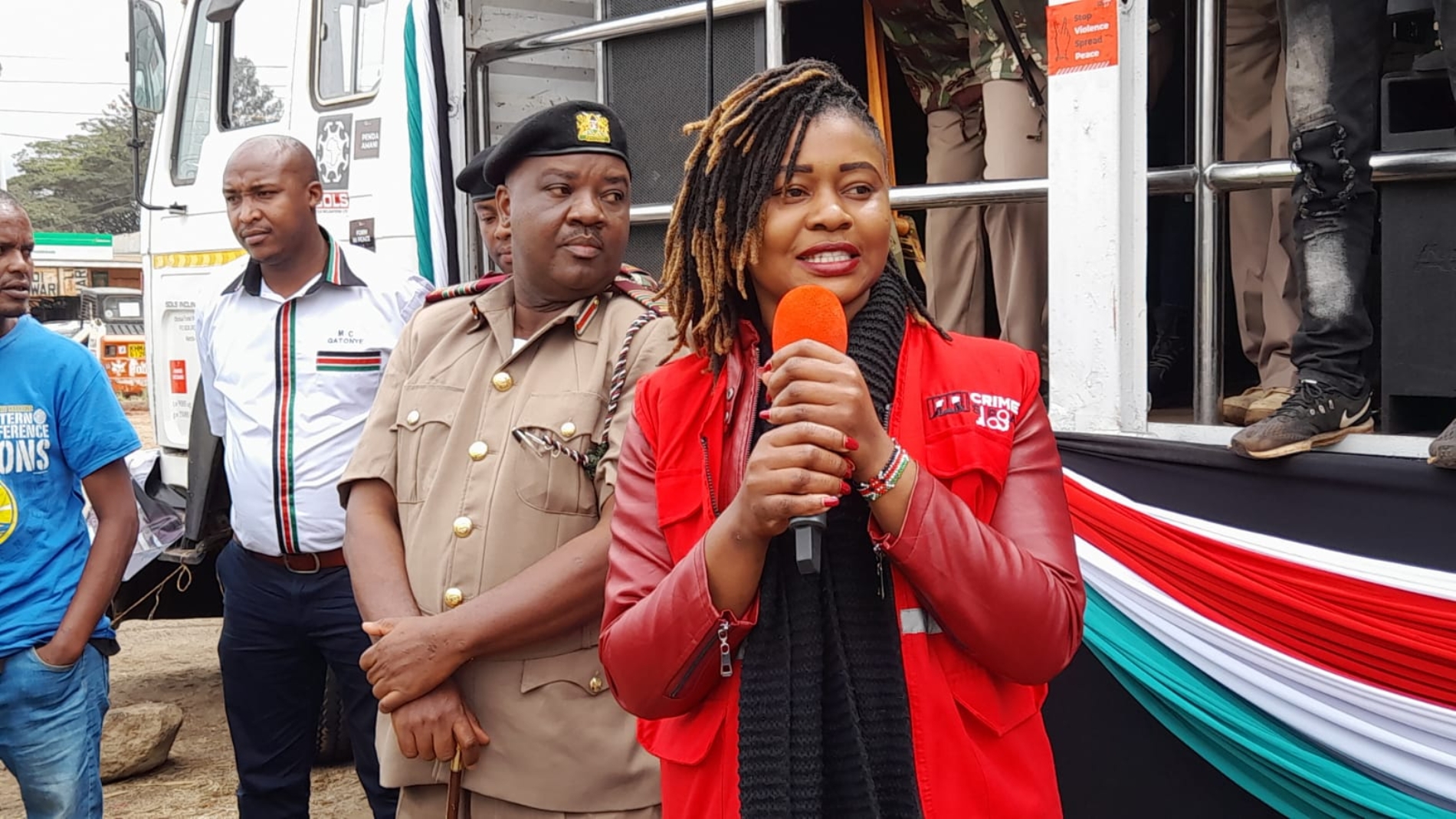James Mutugi Wangechi is not a known name, not famous, at least not by the standards of fandom in the country. He is little known now, even in his neighborhood. That notwithstanding, he is on a mission to change the world with his hands, canvas, and some paint.
“I hail from a small slum called Mukuru Kayamba in Nairobi, Kenya. My family was dysfunctional, and it saw me get all the multifaceted person you see today.”
James started schooling at Pumwani high school, a journey he reminisces with nostalgia and some not-so-pleasant memories. He was from a dysfunctional family, not the normal one where one parent is active and the other is not; he was different. All the parents were absent! He had t learn the survival tactics all alone.
His relatives seeing how he was struggling with school and being alone with his mother, who was a drug addict decided. “ I was taken to a children’s home by an aunty who saw the agony and struggles that I was going through; I felt relieved for the moment.” His love for art was birthed here. He started with simple sketches, but it did not last long.
His cheeky behavior made him fall into the children’s home, and he ran away from class seven just before he sat for his primary education. “ I went to stay with my aunty, who had taken me to the children’s home. Although not well off, she managed to take me in,” he said. His love for art made him a name at Pumwani, where he attended his secondary school, and he said that he made money from skills that helped him offset some of his school fees in the first and second forms.
His delinquent side would catch up with him immediately after completing his high school education. He got into crime, and his aunty had to throw him out. “ I was a grown-up now, and I gave her no other option. She did what she could to protect herself and her kids.” He had nowhere to call home, and that’s how he ended up being a street-connected family. He continued his street criminal activities until the law caught up with him. He was sentenced to 10 years. This is where he met his longtime mentor Peter Ouko, the founder of Crime Si Poa, who counseled him against crime.
Like we all do when faced with adversaries, he needed a distraction, and his hope lay in the canvas and papers. It kept him going. “Canvas was like my therapy and the rehabilitation that I needed in my life; it embraced me” His inborn talent embraced him, and he started doing artwork seriously.
Today he paints to talk about police brutality, prevalent in African informal settlements, and social inequalities affecting the community. “I have also painted some of my life experiences and life happenings to those around me. My paintings are exhibited at the Kenya National Museum and Mukuru art club in Makadara constituency in Nairobi,” he noted. At 40 years of age, his paints have received global recognition and will be presented at Oxford University for a death penalty project workshop and conference.
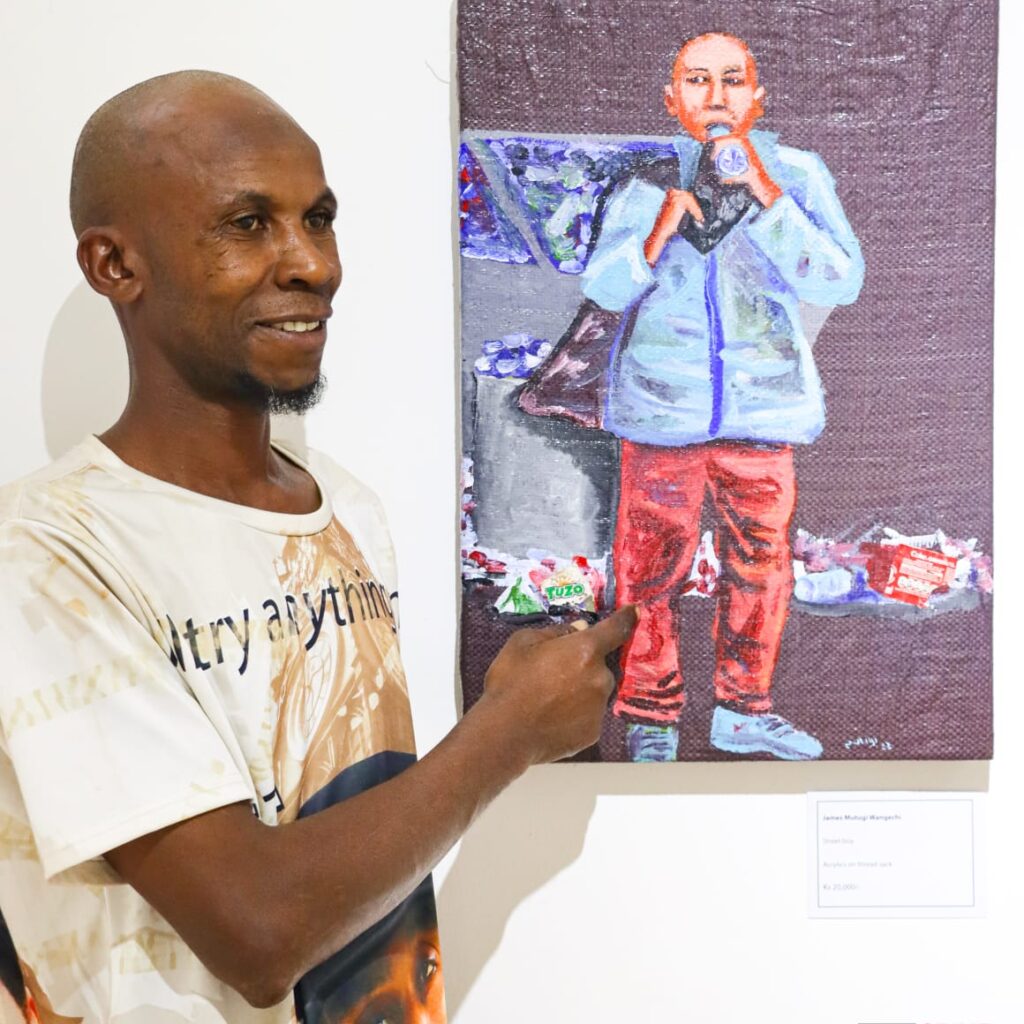

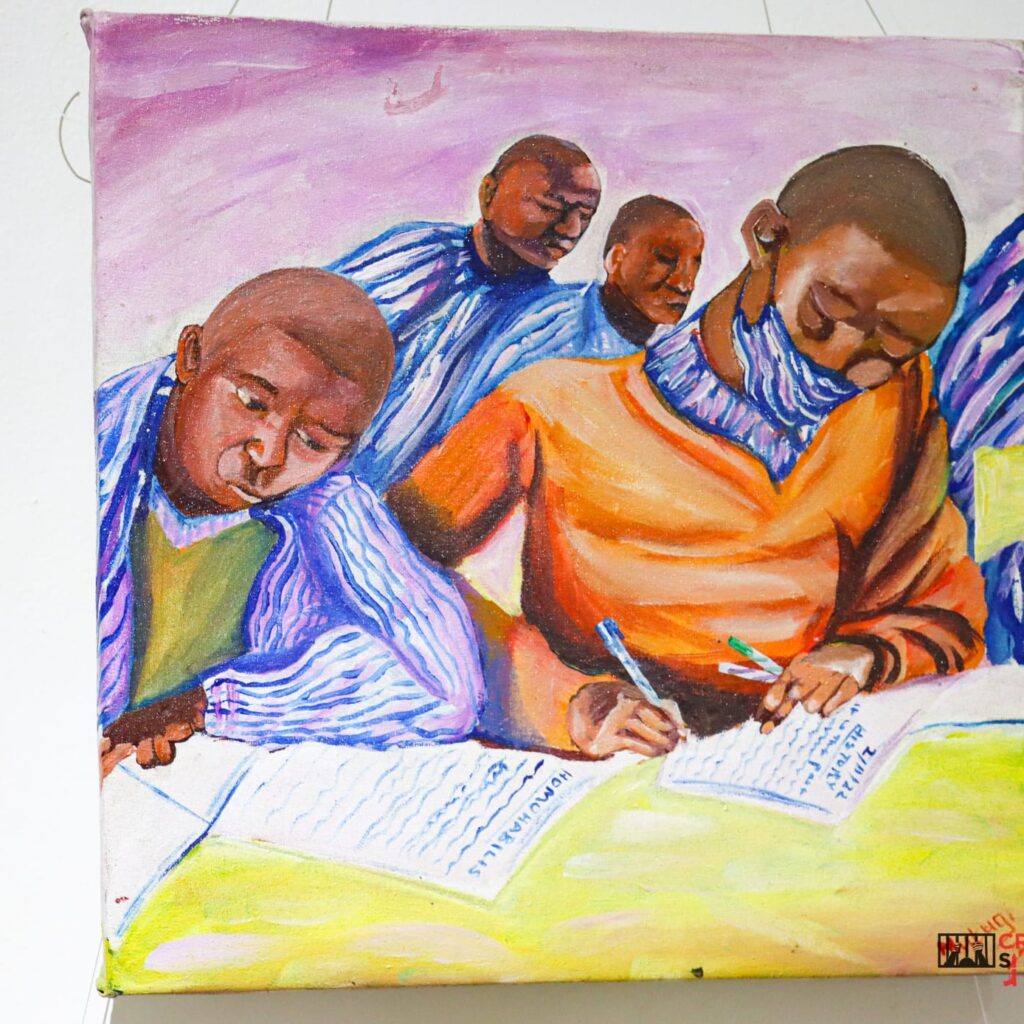

He noted with apprehension that the Kenyan artworks are not yet entirely accepted as people perceive them as a rich man’s affair. “One day, you could be making a killing but then spend the next following months with no sales whatsoever. People who love and appreciate art buy for they know its worth. I would, however, love to see more people come and support the course,” said Mutugi.
In his free time, he mentors young and talks to young people about crime. Mutugi has been a crusader and grand champion of crime-free societies. He thanks Crime Si Poa for all the support he received in referrals and psychosocial counseling before being reinterrogated in the community.
As we left his museum, he also excused himself to go to another exhibition he was eyeing at Alliance Française; he is a man on a mission.

